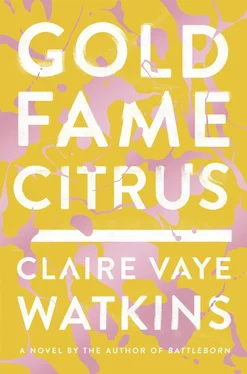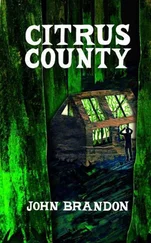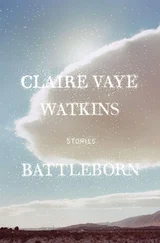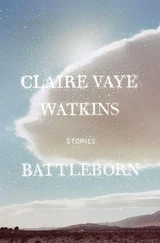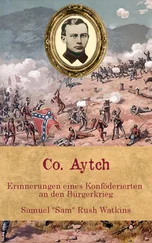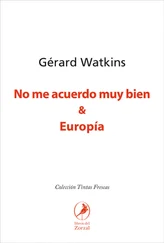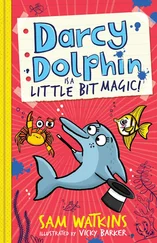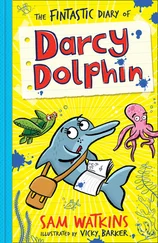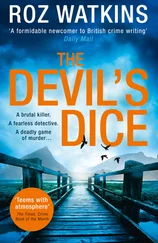They were quiet awhile, even Ig.
Ray said, “Another way, then.”
Lonnie brightened. He needed to be needed. Indeed, there were endless other ways, he said, each illegal and treacherous. He got a visible charge as he listed them all, a little danger boner. One was Oregon, yes. The militia could not be everywhere. There were the tunnels, of course, dug by former dairymen with subsidized earthmovers, though the dairymen were not fond of dark complexions, and their tunnels had a habit of collapsing. “Better to drive up to Crescent City,” he said. “Hitch to the border, swim out around the seawall.”
Ray shook his head. “Luz can’t swim.”
Lonnie said, “I thought she was Mexican.”
“Her mom was.”
Lonnie inspected Luz. “And she didn’t teach you?”
Luz was not going to bite. She focused on grazing her fingerpads along Ig’s nape.
“She couldn’t either,” Ray said. She had drowned, Luz’s mother. She had drowned herself.
Lonnie tugged his Osiris goatee. “The gorge, then. Hike the badlands. Take you two weeks, maybe three.”
Ray frowned toward Ig, limp under Luz’s feather strokes. “We need something safe.”
“You want safe, bribe your way into Tahoe.”
“Or Napa,” Rita said. “The Vintners Society could pay people to stand around and spit.”
Lonnie laughed, then went serious. “Maybe through Texas.”
Ray said, “We don’t have enough gas.”
“No one does,” said Lonnie.
“What if we went south?” asked Luz.
Rita snorted. “Mexico’s a war zone. A complete and utter war zone. Worse than here. Approximately a thousand times worse.”
Lonnie squeezed Rita’s knee. “The Amargosa is blocking it anyway. They’d be stranded in Baja.”
“It’s that big?” Ray said. “The Amargosa?”
Rita said, “Getting bigger every day.”
Lonnie tapped one of his conchos absently. “The Amargosa, now that’s interesting. If I was going anywhere — which I’m fucking not — I’d go to the Amargosa.”
Rita nodded.
“What for?” asked Luz. The Amargosa was sand, a dead swath of it blown off the Central Valley and the Great Plains, accumulated somewhere between here and Vegas.
“There’s supposed to be a town out there,” said Ray. How did he know this? How did she not know everything he knew?
“There is a town out there,” said Lonnie, “run by a prophet. Very spiritual place. Very primal.”
“A town,” said Luz. “Without water.”
“This prophet,” Lonnie said, “is descended from a long line of dowsers. Incredibly gifted. He finds the water.”
This again. There was always some savior out in the wilderness, some senator, some patent, some institute, some cell. So familiar, this stagey faith. Luz’s father had had it; it was how he kept himself atop everyone around him. He believed harder in stupider things, and there was somehow authority in this. Luz exhaled audibly and rolled her eyes. Ray put his hand on her shoulder.
But Lonnie was getting worked up. “There is water, Luz. Just because you can’t find it with concrete and bulldozers and dynamite doesn’t mean it’s not there.”
Rita added, in a cool, inward way that made Luz miss her, suddenly, “Just because they say it’s gone doesn’t make it gone.”
Silence then. A stalemate, a standoff, a standstill, a stillborn. A rain delay. How it was always to end, except Lonnie bounced up and announced, “Let’s do a reading.”
From a drawer in the kitchen he fetched three golden Sacajawea dollars and his tattered catalog of hexagrams, The Book of Changes . He set these on the coffee table, beside that a mechanical pencil and a tiny top-tab spiral notebook, the same kind Ray carried for his lists and poems. Vile, to see Lonnie with it, though of course it had been Ray and Lonnie both who said, “We’re going to run some errands,” before they lobbed a cinder block through the glass doors of the Wilshire Walgreens, a box boasting POCKET SIZE among their loot.
Lonnie fondled the coins now and told everyone to think on their worry, to project their question into the Sacajawea dollars.
Ray said, “All of us?”
Lonnie nodded. “A hexagram,” he said, “is the exponent of the moment it is cast.” Their endeavors, he said — meaning, Luz assumed, a looted journalist’s pad, a mechanical pencil whose red plastic clip was gnawed and three dollops of copper sheathed in brass and stamped with the image of a Shoshone girl kidnapped at twelve and wed at thirteen, when a Frenchman won her in a card game — would correct for their secretmost selves.
Luz had too many worries to think on just one, and her secretmost self was not secret enough, but while it was all undeniably bullshit, she found herself trying.
Here was one worry: Ig. She was worry pooping into an Hermès scarf, worry with skittering coin eyes, worry moaning in the daytime, worry panting at the heat, worry howling through the night. Worry strung out on ration cola, worry with its bulbed head in Luz’s lap. Worry drowsy but fighting it, always fighting it, worry worrying the gauze blooming from her mouth. Worry gathering all other worries to them. But Ig was too delicate to resent, too pearly-skinned to solve, and right now, stroking the tip of her nose with the tip of the nini, vastly too gentle, so much like a godsend.
Lonnie shook the Sacajaweas from his hand and let them land noisily on the glass coffee table— ting ting ting —oblivious or indifferent or likely hostile to Ig so near to nap.
The coins skittered to rest. Two Sacajaweas with two baby Jean Baptistes on their backs, and beside them a bushel of wheat — or maybe arrows? — wrapped in a blanket. Lonnie annotated the whims of the coins in his notebook. “A broken line.”
He took up the coins again.
Luz looked to Ray. She could see him and Lonnie in the same glance and hated herself. Would she always be so hungry? She had taken much from Ray — his home, his friends, his sleep, his sea. Was there no end to her appetite?
Ting ting ting : Three Sacajaweas, three lady Salmon-Eaters with three Little Pompeys, as Clark had christened him, barely born. A line unbroken.
And through that line rose the worry of worries: in what way was Ray no longer her Ray? Luz did not want to take this from him — California, all that it still meant to him — but was glad to, in a way. The sacrifice was a good sign. But what would it cost them? They were lost, yes, but lost together.
Ting ting ting. On one coin, Janey and Pompey, and on the other, an eagle and the other the arrows. A broken line.
“Wow,” Lonnie said. “Oh, wow.”
Ray’s eyes were closed now and his dark lashes met in small, furred slivers. There he was, her Ray, Ray always on the move, his knees ever bouncing. Ray who took her fingers from her mouth so she would not bite them bloody. Ray with the exquisite mouth and its Indiana lapses, saying “pop” or “frigging” or that something was “funky.” Ray who once said he envied her imagination, but also that the places her mind took her frightened him. Ray who said she ought to have a project — Napping is my project, she’d say, but she had not napped since Ig. Ray who said she ought to pay attention to the ration hour, Ought to keep your eyes peeled, he said, as though hers were still coated with a glittery scrim of cosmetics, which they likely were. Ray who tethered her to rock, rock she was now ripping him from.
Lonnie tossed the coins again. Ting ting ting. One Sacajawea looking over her shoulder at her boy or at home, beside her an eagle, beside that the blanket-bound arrows. A broken line.
Ray with Muir’s eyes and wavesickness and a list in his pocket.
Читать дальше
